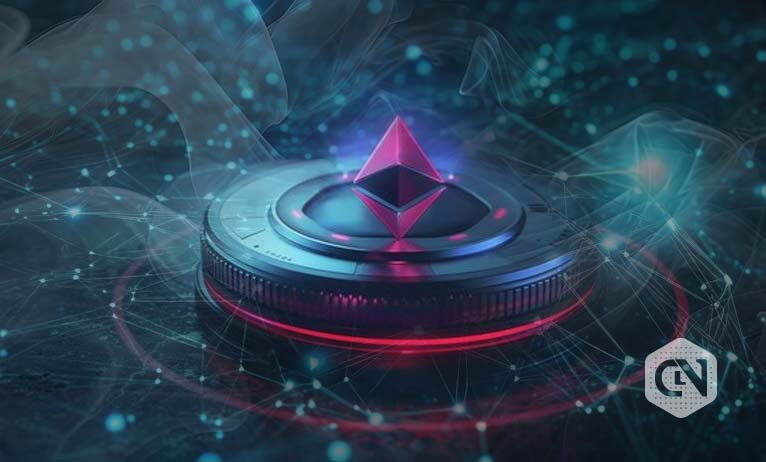The price wanted to finish a transaction or a contract transaction on the Ethereum blockchain is named fuel. Charges are denominated in ether, a small fraction of cryptocurrency-(ETH) referred to as gwei (10-9 ETH). The useful resource supplier is paid utilizing “Fuel” to validate the transaction’s consumption.
Ethereum’s fuel costs are vital in molding blockchain transactions by which good contracts and Decentralized Purposes (dApps) are executed. They’re compensation to Ethereum community miners for expending laptop assets on a specific transaction to prioritize transactions. Understanding fuel charges is essential for these collaborating within the Ethereum ecosystem as a result of they immediately have an effect on transactional high quality and prices. This paper intends to clarify why fuel charges are related in Ethereum transactions and the way they relate to several types of customers, builders, and different stakeholders within the blockchain house.
About Fuel in Ethereum
Along with incomes block rewards, miners got fuel charges as compensation for blockchain upkeep and safety by introducing a notion of remuneration for work performed on a price foundation. As soon as the proof-of-stake algorithm was launched in September 2022, fuel charges as a reward for staking and collaborating in validation grew to become a recipient of ETH. The extra a client places at stake, the higher off they’re.
Ethereum validators obtain cost for staking their tokens, validating blocks, and performing different community features. Relying on the provision and demand for transactions, petrol costs fluctuate. In comparison with earlier durations once they declined, petrol prices could rise if the community is crowded. However, bills lower if there are few customers.
The Position of Fuel Charges in Ethereum Transactions
Fuel charges play an important position in pricing Ethereum transactions by dictating the associated fee and order of precedence for good contracts and blockchain transaction execution. Miners obtain these charges from customers as compensation for validating and including their transactions to blocks. Extra complicated processes require better fuel charges, which mirror the computing complexity of the transaction. Along with affecting transactional economics and person expertise, fuel prices are important to the safety and effectiveness of the Ethereum community.
Pricing Mechanism: Fuel fees are a pricing system that determines what number of transactions and good contracts are processed within the Ethereum blockchain.
Community Safety: Fuel charges reward miners with transaction charges for validating transactions and securing the community, guaranteeing the integrity and reliability of the Ethereum blockchain.
Transaction Prioritization: Fuel charges encourage miners to incorporate higher-paying transactions in blocks, which provides customers prepared to pay increased charges quicker processing occasions. This helps prioritize transactions.
Financial Effectivity: Fuel costs mirror the computing energy wanted to execute transactions, selling efficient utilization of community assets and discouraging junk or frivolous transactions.
Improve On-line Playing Transactions: Within the cutthroat world of on-line playing platforms, fuel charges are important to immediate and seamless transactions. Fuel charges support in prioritizing and accelerating transactions within the context of the finest Ethereum casinos, the place fast transactions are obligatory to offer prospects a flawless gaming expertise. Fuel charges assist on-line playing methods perform extra effectively by offering miners with an incentive to execute transactions rapidly. Customers can deposit cash, place bets, and withdraw wins with out ready. Fuel charges are important to maintaining gaming methods responsive and reliable on this fiercely aggressive enterprise the place person expertise is all the things. This will increase buyer pleasure and engagement.
Consumer Expertise: Fuel charges immediately influence the person expertise by influencing transaction velocity and value. Customers should stability their desired transaction velocity with the related fuel charges to optimize their expertise on the Ethereum community.
Affect of Fuel Charges on Customers
Customers on the Ethereum community are considerably impacted by fuel charges in a number of methods. Initially, they immediately influence transaction prices; prospects executing transactions or interacting with good contracts would incur increased prices as a consequence of increased charges. This may increasingly make it tough for some customers to afford, particularly these with smaller transaction quantities or much less monetary means. Fuel costs additionally influence transaction velocity; typically talking, better prices result in quicker affirmation occasions and vice versa. Nevertheless, customers could often face challenges because of the trade-off between value and velocity, notably throughout community congestion. Moreover, excessive fuel prices might discourage customers from utilizing blockchain-based apps or collaborating in some DeFi actions, proscribing accessibility and participation. Sustaining a superb person expertise and inspiring wider adoption of Ethereum and decentralized apps require placing a stability between value, transaction velocity, and community effectivity.
Conclusion
In abstract, Ethereum’s fuel charges considerably influence transaction costs, velocity, and person accessibility, all of which form blockchain transactions. They prioritize transactions and incentivize miners to validate them, appearing as a value system. Though increased charges can velocity up transactions, customers could discover them costlier. Optimizing the person expertise and inspiring wider adoption of Ethereum and decentralized purposes want placing a stability between value and effectivity.

